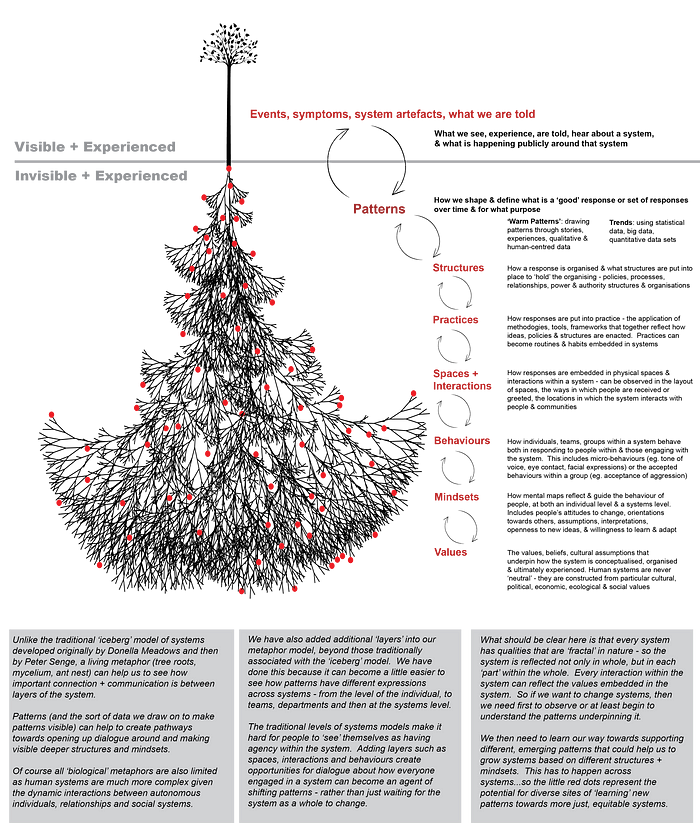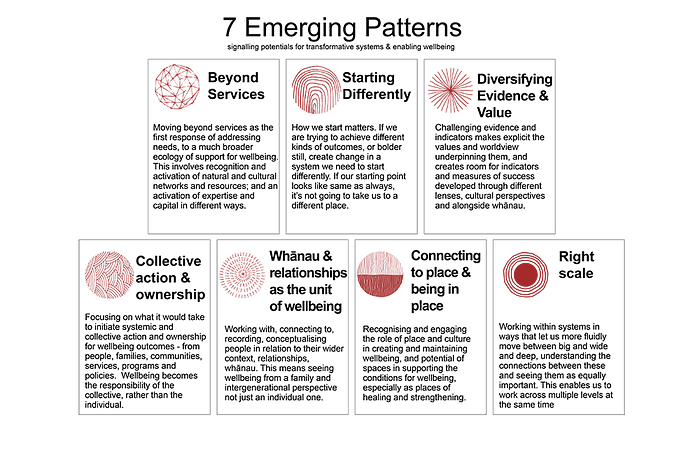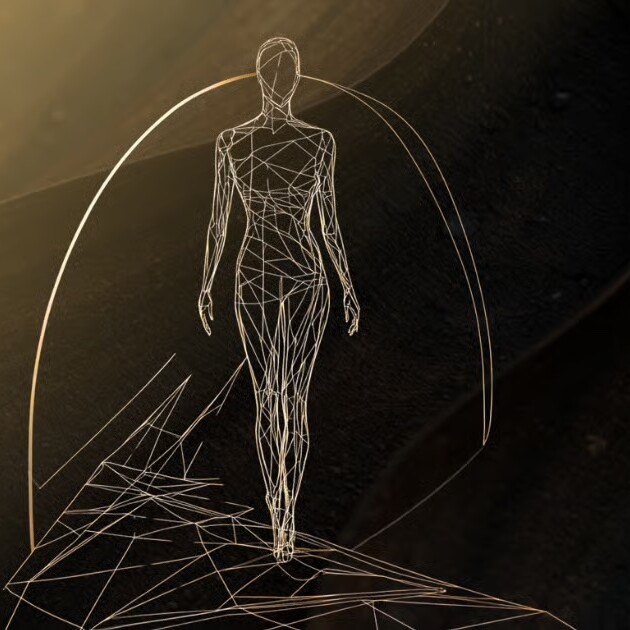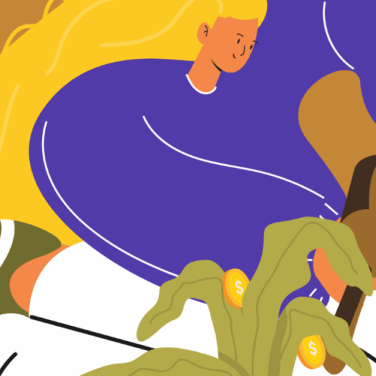7 everyday patterns to shift systems towards equity
Many recent discussions about civic innovation and systems change have focused on big structural changes that need to take place if we are to grow more equitable outcomes. Along with our friends at TSI / Auckland Co-Design Lab we suspected that we also needed to explore what could happen underneath those structures at the level of more fundamental and ‘everyday’ values, mindsets, behaviours and interactions.
Our combined piece of work began with the hunch that ‘there are already patterns of change that exist and are emerging’. Maybe there were pockets of the future that already exist in the work we were doing that could help transition systems towards equity?
This series on patterns is the culmination of this exploration. We offer it as a demonstration that shifting systems towards equity is possible and that it is the responsibility of everyone to start doing and being differently, in every part of every system, every day.
It introduces seven patterns we have identified across the work of TSI in South and West Auckland that go some way to making visible, active re-patterning for equity and power sharing. This blog and the full PDF introduce the series, and we will release more detail on each pattern over the next couple of months.
First — what’s a pattern in the context of systems change?
In simple terms, patterns are interconnected behaviours, relationships and structures that together make up a picture of what ‘common practice’ looks like and how it is ultimately experienced by people interacting with and in a system.
If we take Public Services in the twenty-first century here are some examples.
Public Service organisations have most often been formed around concepts such as universal access, service delivery, social safety nets, and public provision of critical infrastructure. Built into these elements are patterns, like:
Patterns of relationships: based on objectivity, universalism, professional relationships.
Patterns of resourcing: focused on rationing, efficiency, programmatic resource flows.
Patterns of power: centred on professional expertise, needs assessments, deserving access to spaces and services.
On the surface, these are not necessarily negative and there have doubtless been many successes enabling broad access to services and infrastructure.
It’s also true though that there remain many who have not benefited, who have missed out on access or opportunity, and who have actually been harmed by and within the system.
What is needed is a foundation for public systems that moves away from goals of access to more and better servicing of communities, and towards goals around learning how we can promote patterns of thriving, aspiration, success and ‘wellbeing’.
The role of everyday patterns in shifting systems
There are a growing number of people discussing the need for systems in many circles — from service providers, funders, investors, intermediaries, and policymakers.
As noted above, most of these discussions focus on the big-picture tasks of pulling various levers from policy changes to new program design.
However, in our work alongside public servants, we have found it just as important to focus on how we shift the foundational patterns, behaviours, relationships and interactions that underlie all parts of systems.
The everyday patterns.
These may look small in the scheme of systems, but actually, they can fundamentally shift people’s lived experience of systems. And importantly — they are within the reach of every one of us who works in a system to start to learn our way into.

Becoming pattern learners to re-pattern systems
If we’re interested in systems transformation we need to become pattern learners.
Humans are extraordinarily good at recognising and responding to patterns. They have always helped us understand, navigate, make sense of and respond to the world around us. Every pattern — every interaction within a system — can reflect the values embedded in that system. So, if we want to change systems, we need first to observe or at least begin to understand the patterns underpinning it. We also need to imagine, learn, test and spread new patterns in order to affect change.
The patterns we present here provide a glimpse of transitioning to more equitable, just and healing systems. They have been developed in a context and are still more like starting points than fully developed patterns of good practice. We see them as prompts that help us to learn, make sense and meaning and deepen dialogue about what it may take to truly create transformed systems for wellbeing in equitable and just ways. We share these patterns to foster collective dialogues about how we can shift systems towards wellbeing, where people and places can flourish rather than just survive.

Over the next couple of months, we will share deeper dives into each pattern, culminating finally in a combined piece of work.
Read the first deep dive: Beyond Services
Read the second deep dive: Starting Differently

The Yunus Centre at Griffith University exists to accelerate transitions to regenerative and distributive futures through systems innovation
Originally published at Medium
featured image found here

Network Weaver is dedicated to offering free content to all – in support of equity, justice and transformation for all.
We appreciate your support!
donate in the box above or click here
Related Posts
April 22, 2025



